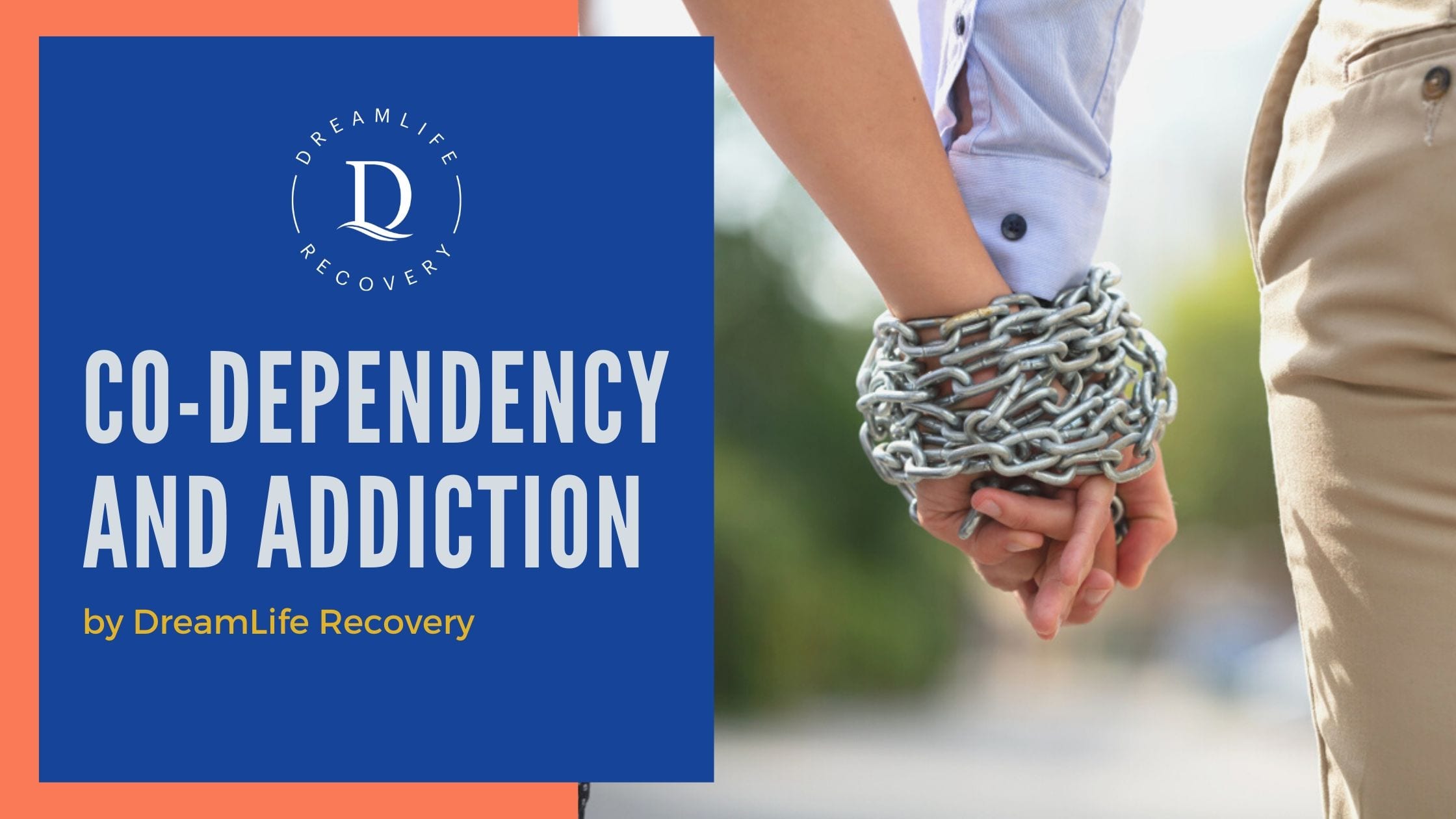Co-dependency and Addiction


Written By
DreamLife RecoveryCodependency and addiction have a strong connection although they are two different conditions people may struggle to manage. Codependency is when one person develops an unhealthy attachment to another person whose behavior in the relationship is damaging, often because of a mental or behavioral disorder. Addiction is when a person is psychologically and physically dependent on a substance and cannot control their substance use. There are multiple ways codependency and addiction connect and overlap, and it is important to find a treatment program that offers family therapy to address relationship issues and codependency for recovery.
How Codependency and Addiction Relate
In some cases, codependency can contribute to the development of substance addiction, especially if one person in the relationship already abuses a substance. For example, a woman may date a man who is a heavy drinker. If she struggles with co-dependency, she may begin drinking to stay close to her partner and to cope with the pain of the codependency.
People may also experience codependency and unhealthy attachment issues in childhood particularly if their parent(s) have substance use issues. They may develop an addiction later in life because of their codependency in childhood and being exposed to substance use. Children of parents with addiction may also struggle more with codependency in their adult relationships as well and may turn to substance use as a coping mechanism.
It is also common to see well-meaning family members or loved ones of an addict struggle with codependency. They want to help the person with their substance abuse and strive to keep them safe and out of trouble but in doing so can enable them. In the process, the loved one with codependency suffers and may need help to overcome the behaviors developed in trying to care for the addict. The codependent-addict relationship can cause problems in families and can require the codependent person of the relationship to require counseling to recover from these unhealthy attachment issues.
Codependency: An addiction to a relationship
Codependency comes with its own controversy. There are people who consider it an addiction to a relationship and thus a disease marked by a set of behaviors and symptoms that can progress in stages and become worse over time. At its most basic, a person dealing with codependency avoids dealing with their own personal issues and pain by focusing on helping another person, often a family member or romantic partner.
The focus on helping the other person in the relationship can become obsessive to the point that the codependent’s mental, emotional, and physical health suffers. It may begin with the person paying more attention to the relationship partner, denying or ignoring problematic behavior and violating their own boundaries to justify or compensate for the person’s harmful acts.
If the relationship continues, the codependent may start blaming themselves for the partner’s behavior and could develop self-esteem issues from the guilt and shame they feel for being unable to help their loved one. The codependent may try to change the troubled loved one through manipulation, abuse, or nagging. They may develop anxiety or depressive disorders, eating disorders, or substance use disorders to cope with the stress of trying and failing to change or help their loved one.
To help someone in a relationship of codependency and addiction, it is important to be sensitive and avoid blaming them but to be firm and provide evidence of how and why these unhealthy behaviors need to be stopped.
Family Therapy: Addressing Codependency in Addiction Treatment
Addressing codependency in addiction treatment is crucial to a healthy and complete recovery. Firstly, a personalized treatment plan with individual therapy sessions should be included to uncover any codependency or other unhealthy attachment issues the person in recovery may need to address. Codependency that was an underlying cause of the addictive behavior should be treated through therapeutic modalities that shed light on the problematic behaviors, their root, and how to recognize and manage them for the future.
Family therapy is another key in addressing codependency in addiction. If a loved one struggled with codependency, that person should be included in the recovery and should be educated on how their behaviors fueled the addictive behavior of their loved one, which is ultimately more damaging than helpful. The loved one who struggled with codependency could have a major role in the recovery of their partner in the codependent relationship and needs to deal with their own issues in order to offer support during recovery. Family therapy invites loved ones to join either in person or through video calls to receive counseling together.
If you or a loved one is struggling with addiction or codependency or both, contact our admissions team right away to see how we can help at DreamLife Recovery.
Resources
https://www.wisegeek.com/what-is-the-connection-between-addiction-and-codependency.htm






